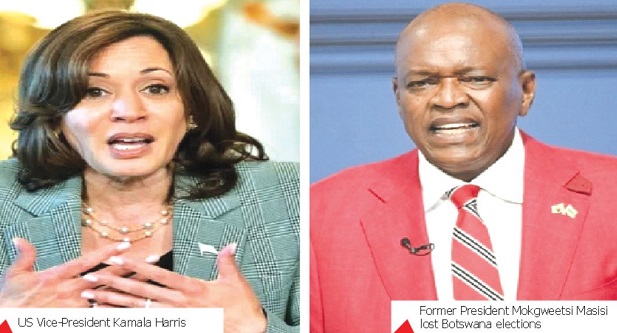DONALD Trump’s impressive victory in the recent US presidential election focused attention on the issue of incumbency.
In 2024, the representative of the party in power at the time of a general election seems destined to lose.
This year has seen dozens of elections across the globe, and pundits have noticed a trend: the party in power at the time of the election loses.
It doesn’t seem to matter if the party is on the left or the right, the incumbent is likely to lose the election to the main opposition party.
The British Conservatives, New Zealand’s Labour Party, the Liberal Democratic Party of Japan and South Africa’s African National Congress all have an important thing in common: they were incumbents and lost recent general elections.
All were heavily beaten, part of the greatest wave of anti-incumbent voting ever seen. Put another way, governments of left and right, radicals and moderates, liberals and nationalists are out of favour with the voters.
Change
This is not, however, an ideological issue. It is about voters keenly wanting change, the key factor driving a global trend to oust those in power.
Why is this the case? The most obvious reason is price rises: a lot, everywhere.
Prior to the presidential election, American voters constantly moaned that prices were going up, unlike wages and salaries. Who was to blame?
Those in power, of course. What to do about it? Throw the rascals out and give someone else a chance. After all, they couldn’t do any worse, could they?
But perceived incumbent incompetence is only a part of the story, albeit the one many voters pointed to. Around the globe, the post-COVID reopening in 2021 drove a surge in consumer demand which raised prices, considerably.
The inflationary trend was accelerated by the disruption to energy supplies after Russia’s invasion of Ukraine in February 2022.
Price inflation raises the issue of accountability. While voters accepted COVID restrictions as necessary to defeat the pandemic and by and large supported governments who imposed necessary restrictions, when the pandemic was over, they wanted payback: better jobs, better lives, more fun, more freedom. Price inflation made many voters feel insecure. Why are prices rising so fast, faster than my salary? they asked.
It is not obvious why war abroad leads to more expensive bills at home. An economist would explain that the reason why prices rise so quickly is due to the vagaries of a global supply chain; but that is both complex and fragmented; it is easier to blame the national government.
With that, the die is cast. Unaware or uncaring that price rises are largely beyond the control of their government, frustrated voters blame those in charge. Put differently, inflation is global, electoral blame is national.
Ghana’s elections
Ghana’s general election is exactly three weeks away. Polls indicate that the main parties are neck and neck. The incumbent government wants to ‘break the 8’, while the main opposition party is determined to regain power after two terms in the electoral wilderness. How will the power of incumbency work in December’s elections?
Ghana’s inflation rate is around 22 per cent, the cedi has been consistently falling against the dollar, leading to price rises for a range of consumer goods. Employment levels are problematic.
Many young people, including university graduates, cannot find jobs that they believe they are entitled to. In addition, many see the iniquities linked to corruption and want something better.
Presidential candidates have been making the case to be the next president of Ghana. Barring an unexpected electoral turn, with a third-party candidate winning the presidential race, Ghana will have either the New Patriotic Party (NPP) or the National Democratic Congress (NDC) in the driving seat when the new government takes power in early 2025.
Dr Mahamudu Bawumia of the NPP likes to call himself the ‘change’ candidate, as does the NDC’s John Dramani Mahama. Critics say that Dr Bawumia has been a key figure in the current government and his election to president would not amount to meaningful change.
Mr Mahama, on the other hand, has been in power before, a one-term president whom his critics claim did not do well during his time in office.
Voters’ desire
Voters around the world have voted for ‘change’, seemingly regardless of the ideological stance of the incumbent party. Which of Ghana’s ‘change’ presidential candidates will win on December 7, 2024?
Both leading presidential candidates promise voters improvements over the next four years. Yet, voters may be cynical when it comes to believing them. Many look to the future rather pessimistically; after all, there is precious little good news around, not least because global conflicts, with their likely impact on prices, are not lessening.
Voters enter the polling booths on December 7, wanting a purposeful, determined, focused, clean and competent administration. They want the new government to ensure that price rises are small; they want a government that has their backs.
Turnout could be quite low, not least because there does not seem much overt enthusiasm for any of the competing parties and presidential candidates.
The difficult task for the next government is delivering on promises in an inauspicious global environment. Gaining power may be the easy bit; the hard task will be for the government to deliver on its promises – when the means to do so may be out of their hands.
The writer is an Emeritus Professor of Politics, London Metropolitan University, UK.

